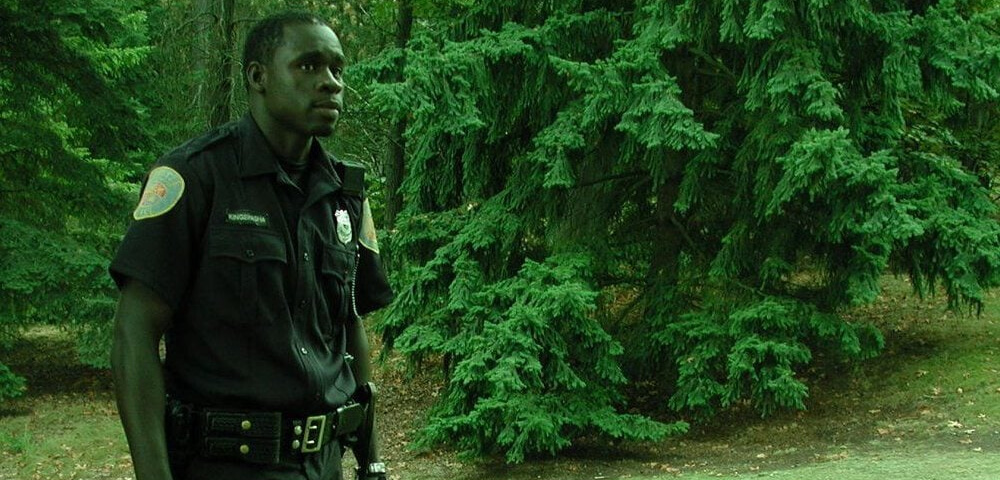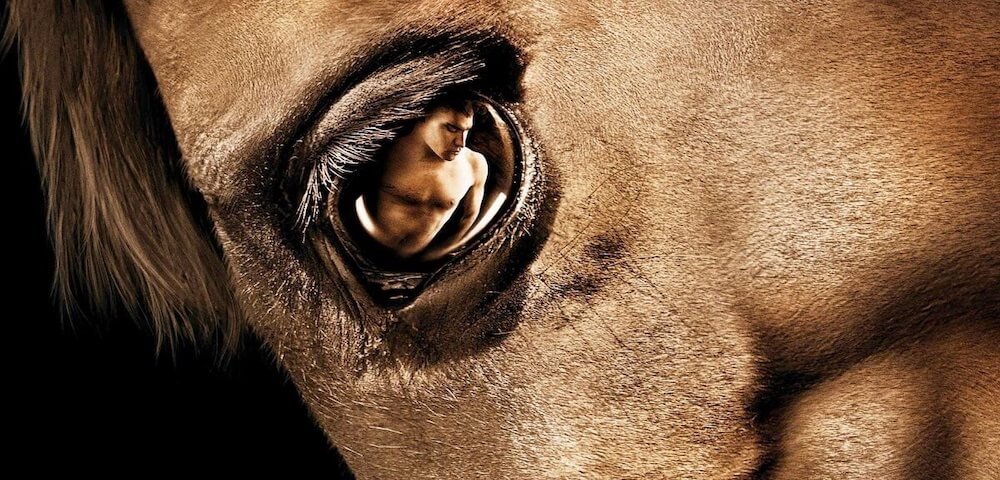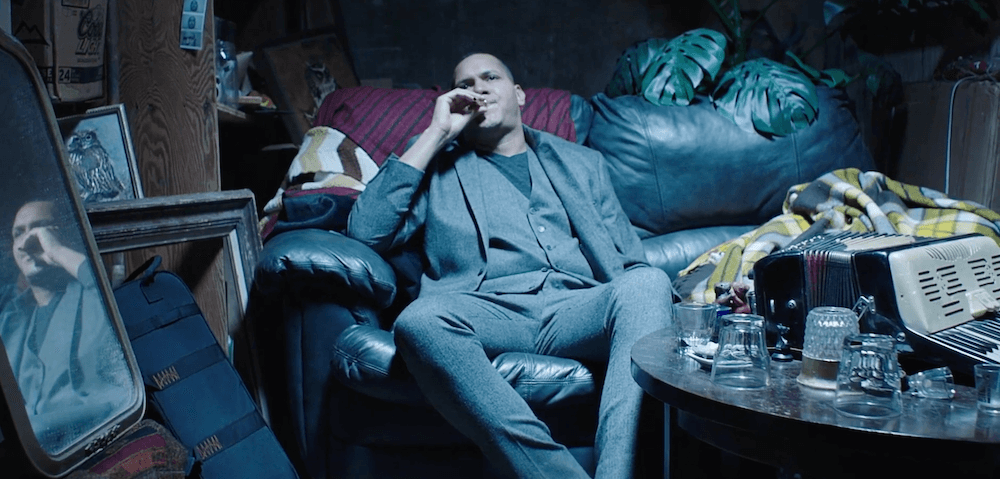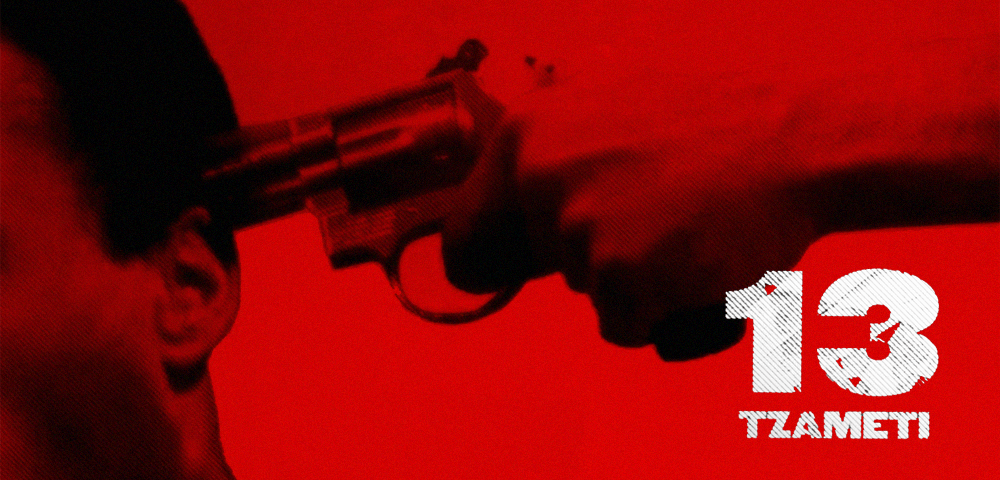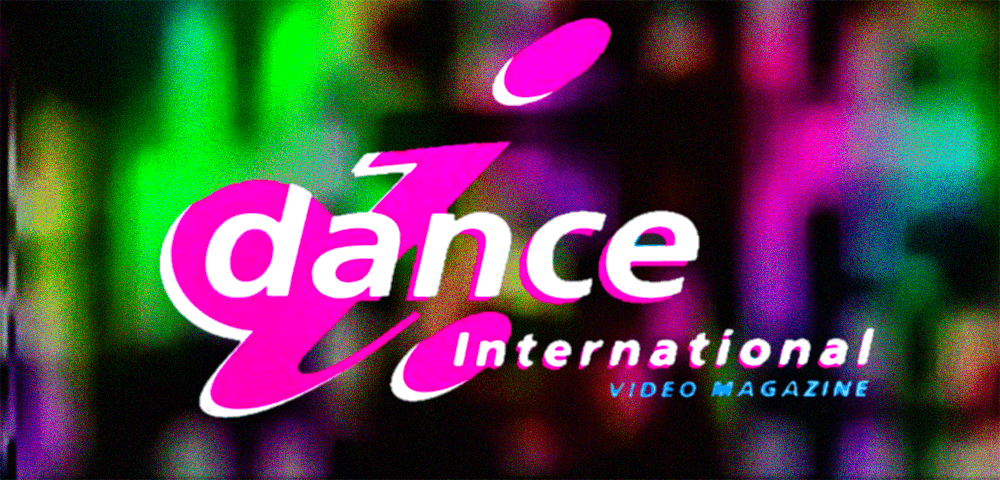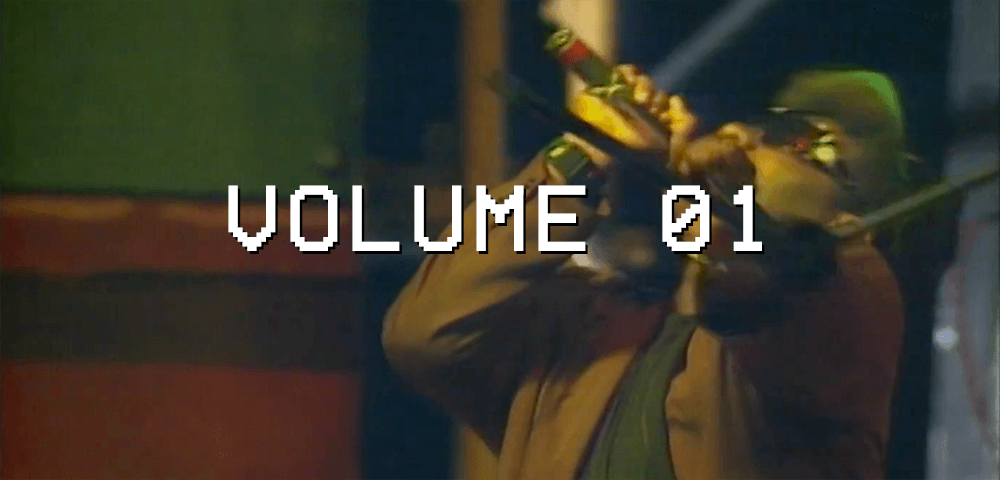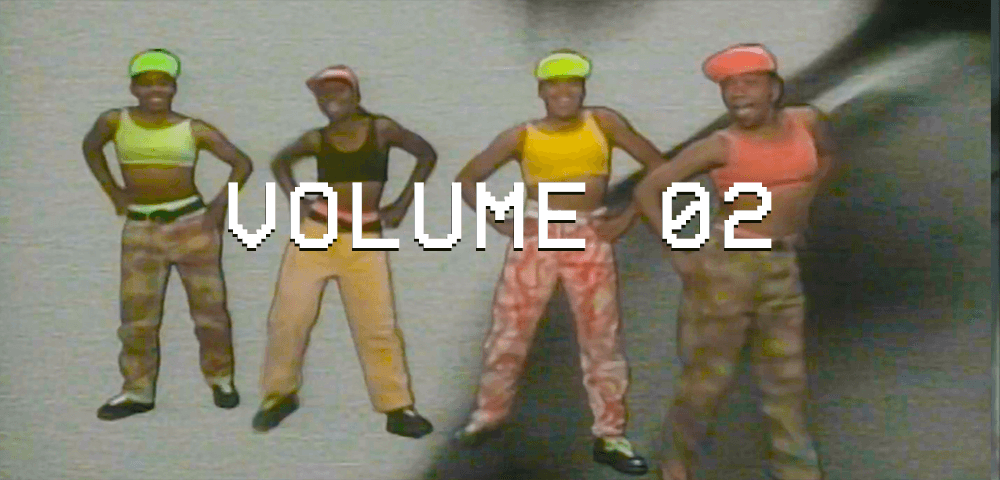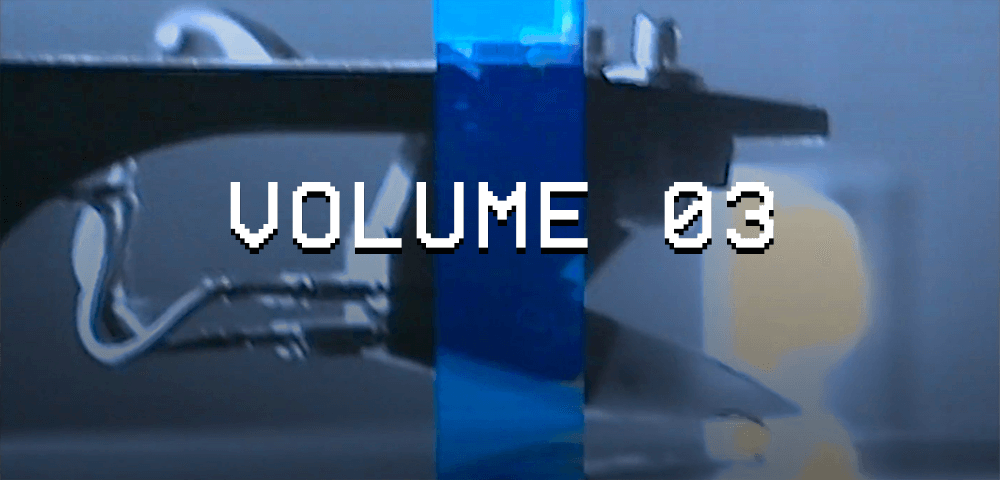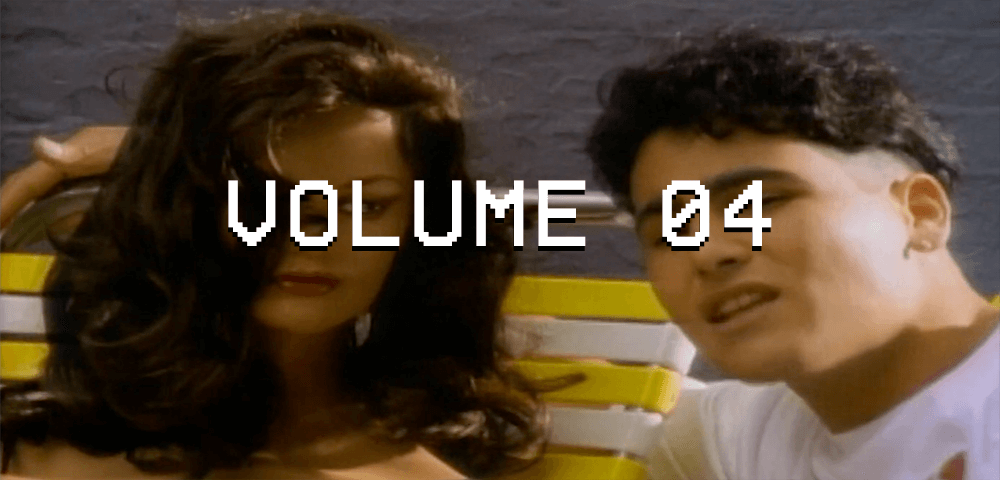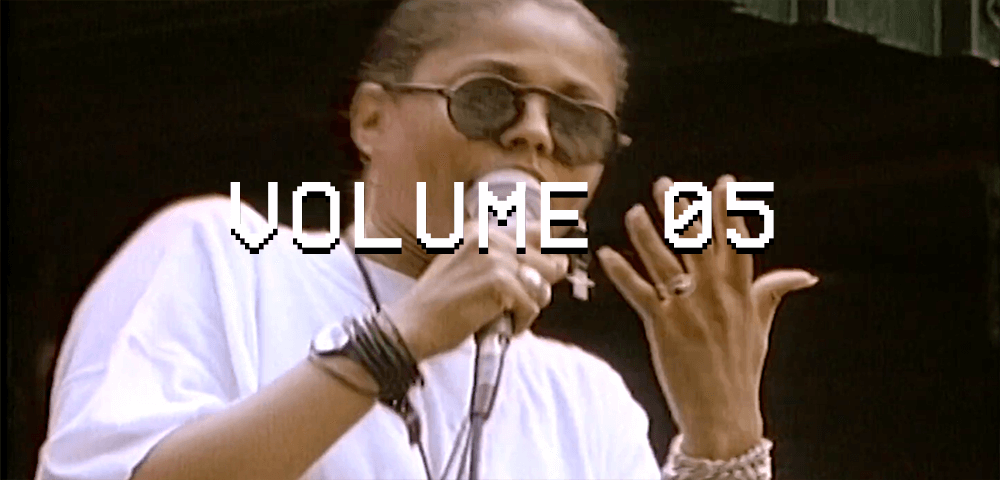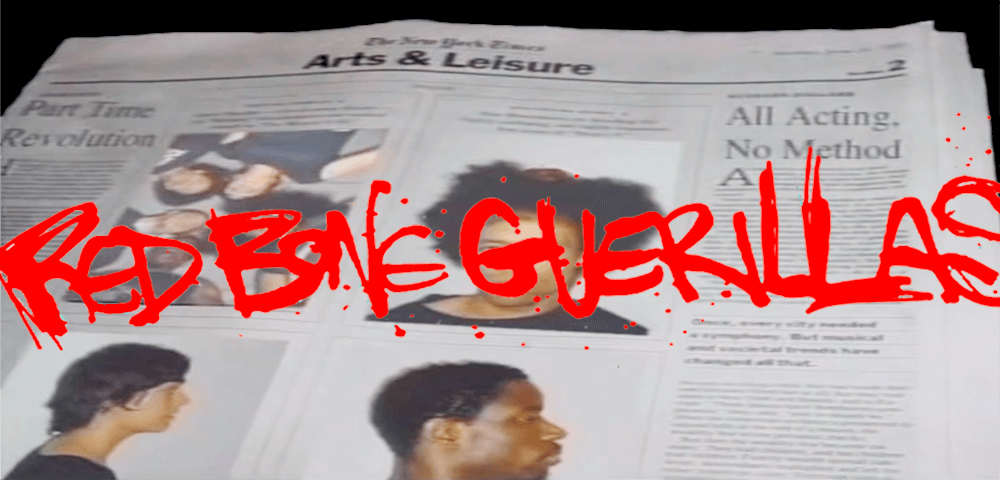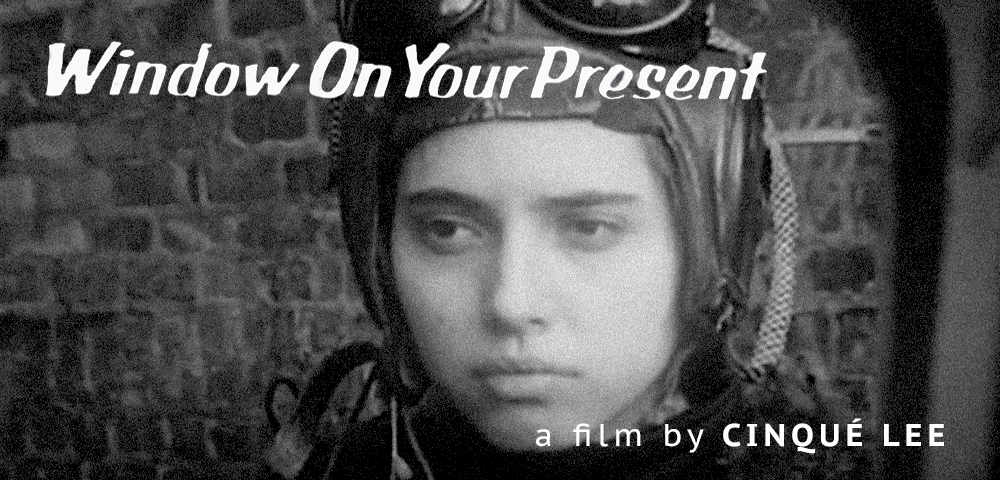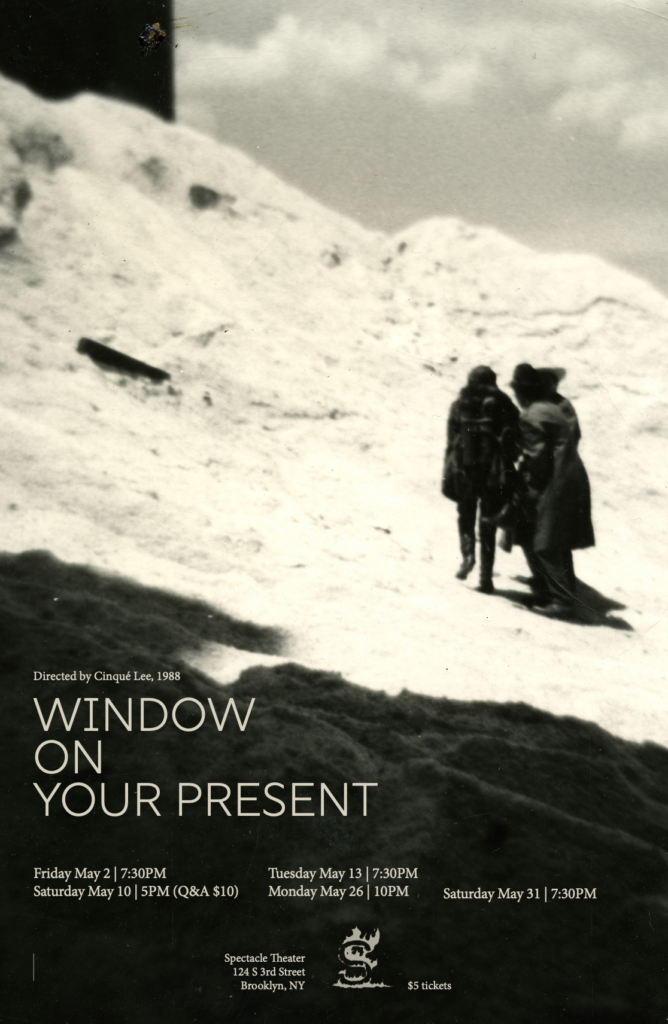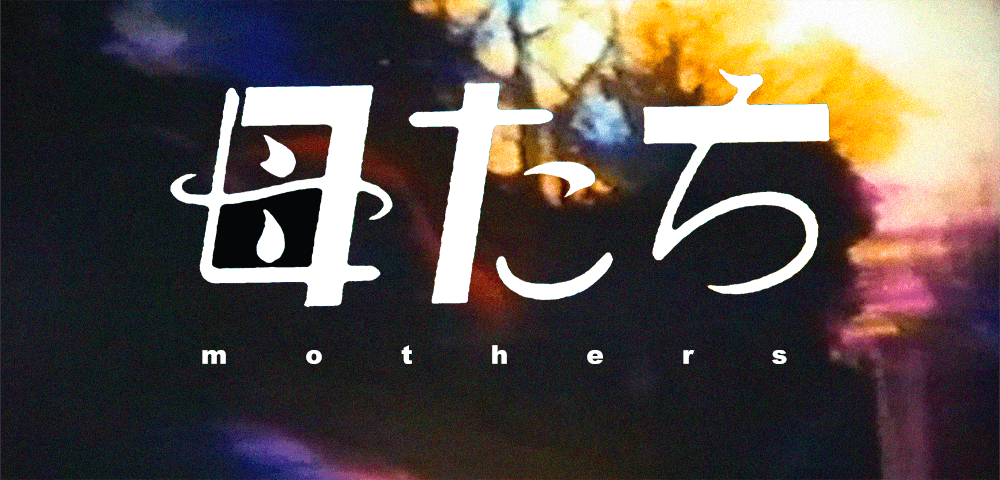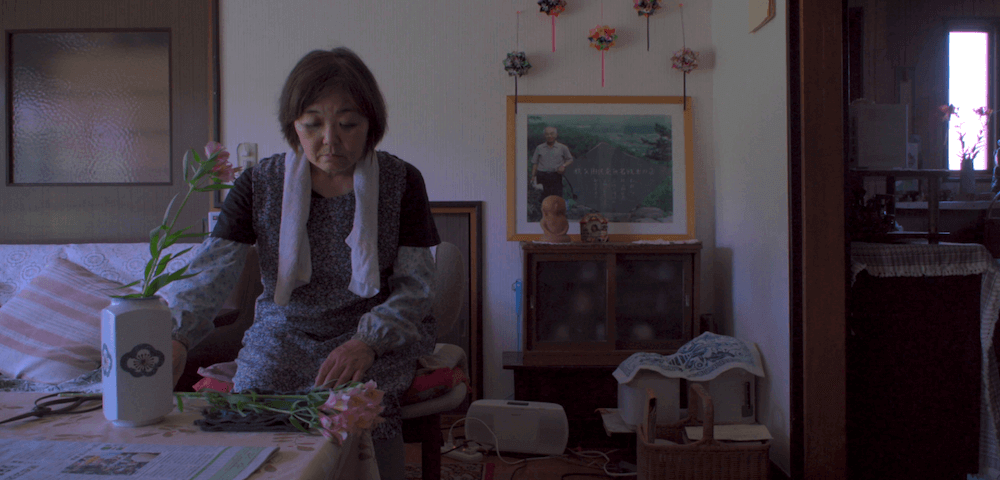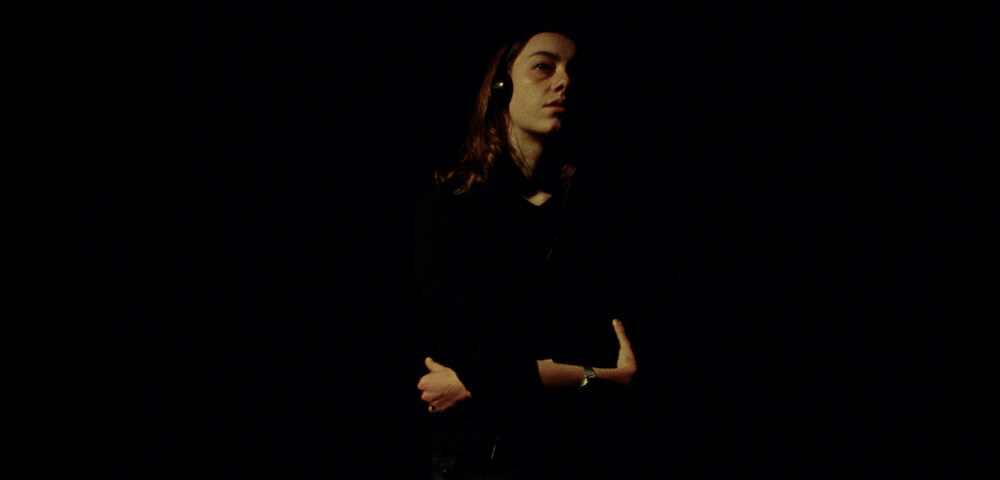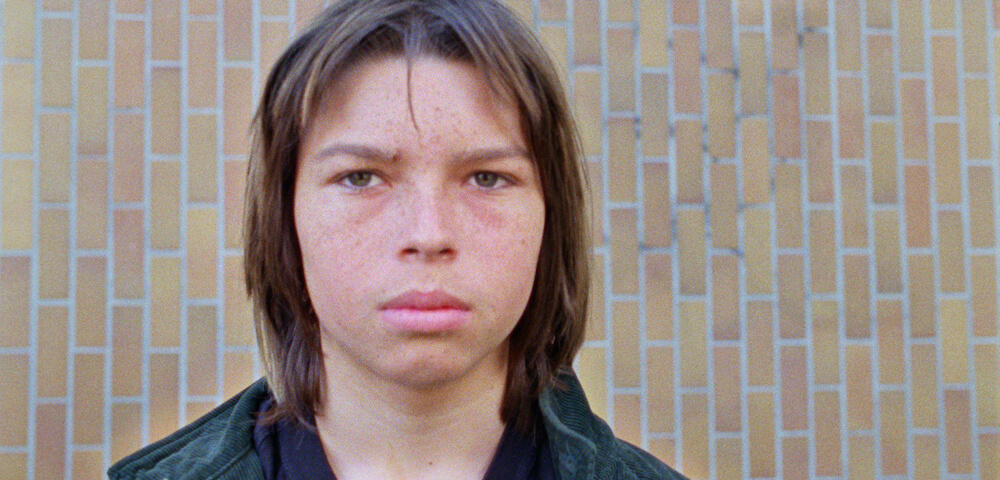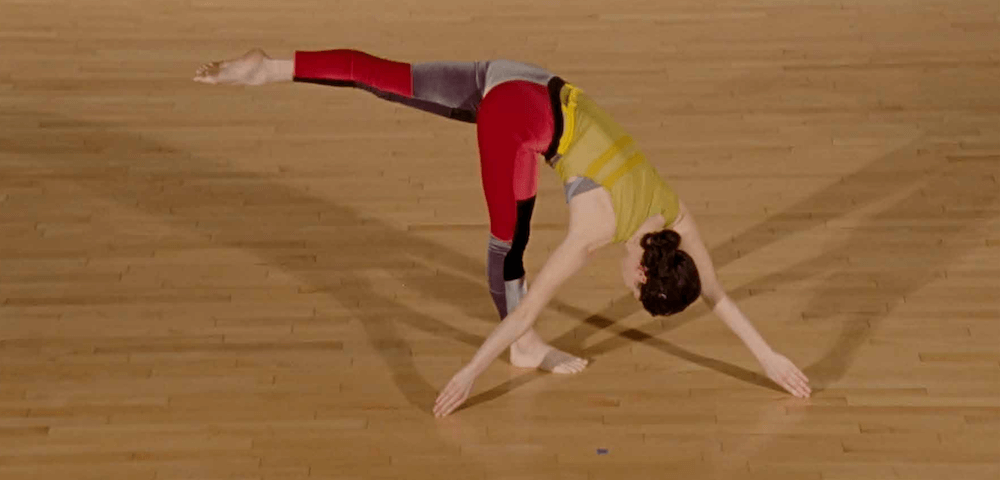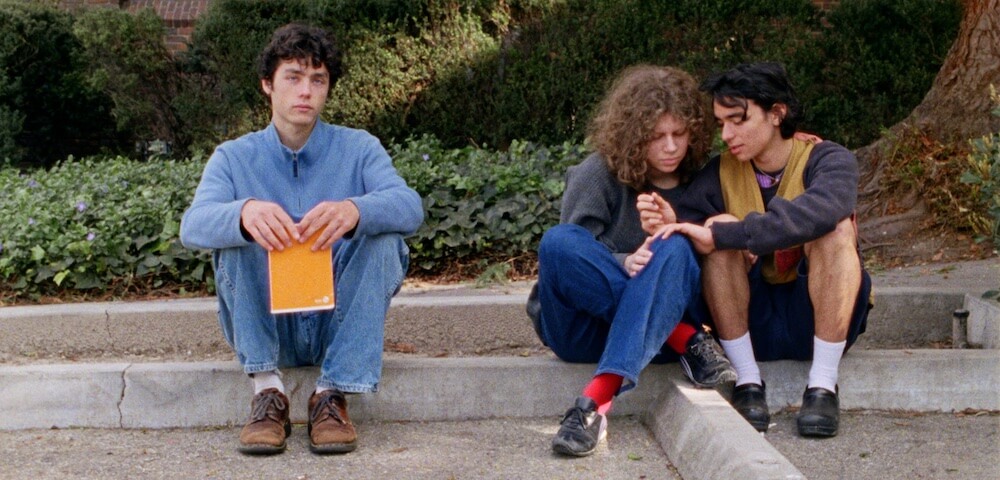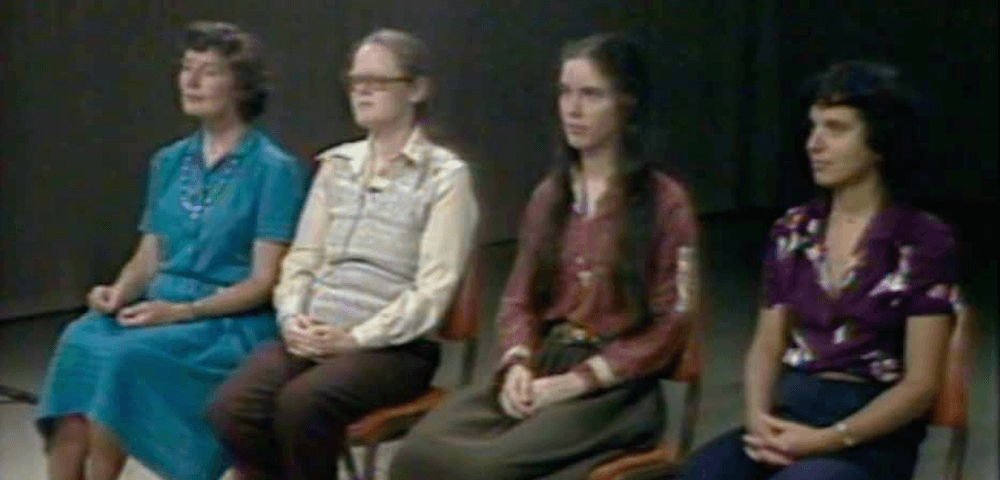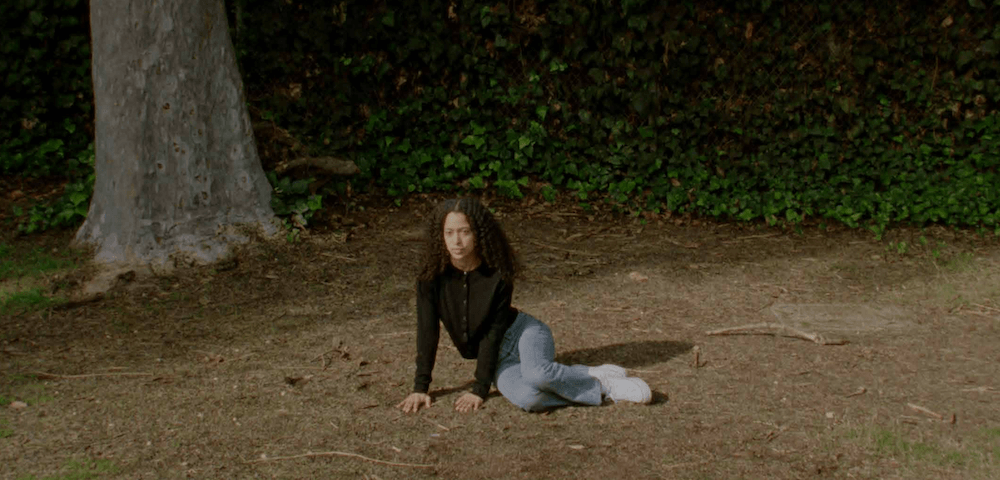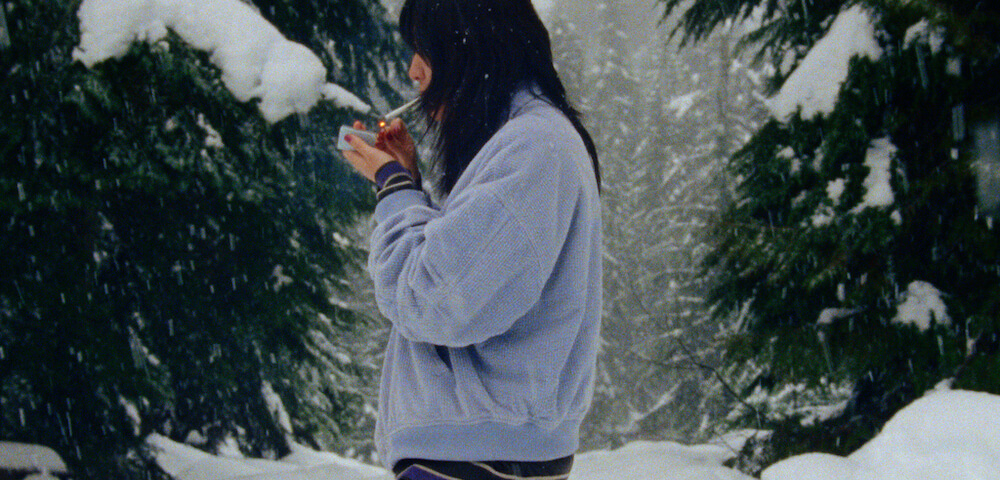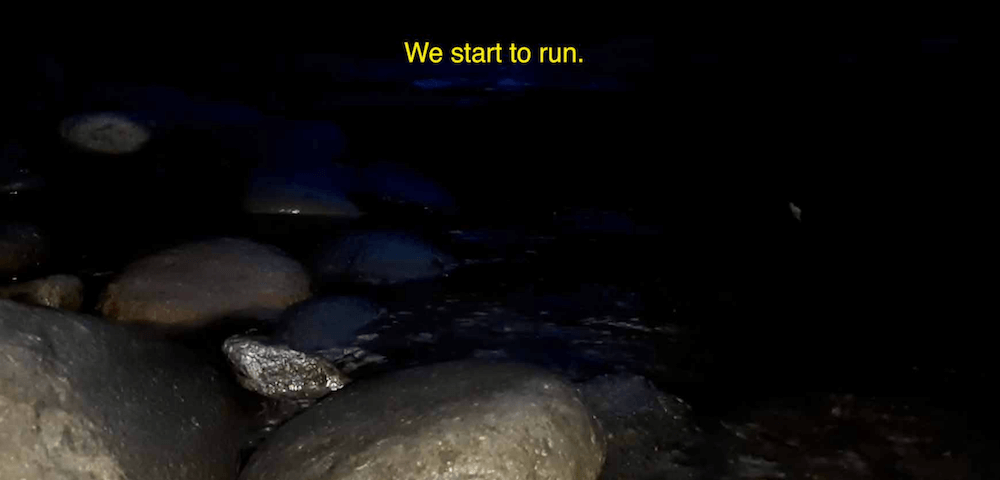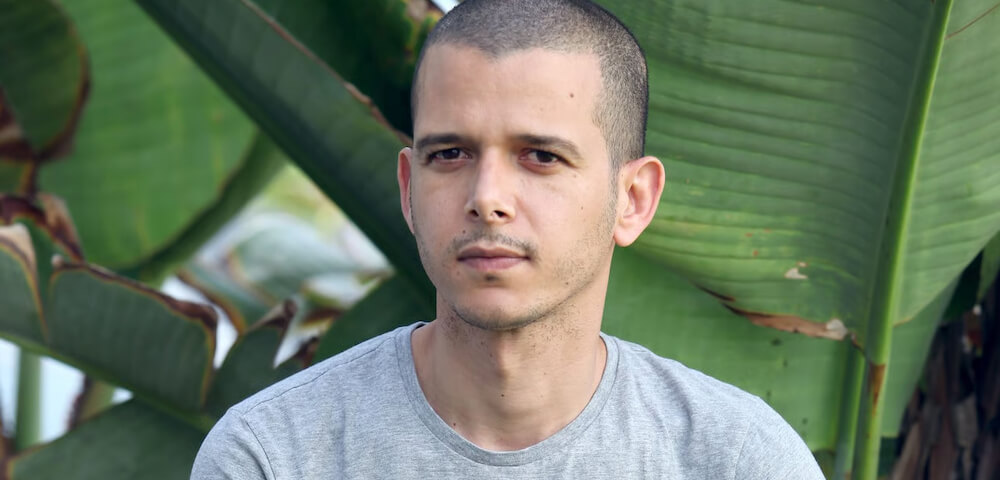
Every month is Pride month at Spectacle, but in June 2025 we are nonetheless honored to screen two films by novelist and director Abdellah Taïa, the first openly gay filmmaker from Morocco. This series includes a limited engagement of Taïa’s (as of yet undistributed) new feature CABO NEGRO, plus screenings of his notorious – and still underappreciated – autobiographical drama SALVATION ARMY, made a decade earlier. Taïa will join us for remote Q+As on June 8 (SALVATION ARMY) and June 13 (CABO NEGRO).
“My neuroses are, at some level, what we might call my creativity. But what I produce artistically does not help me in any way in my real life. Nothing is resolved. Everything is complex, complicated. I sincerely believe that there is only love to heal and soothe troubled souls… To me, (books and films) have the same source: the wonderful Egyptian films that I discovered with my family on Moroccan television during my childhood. Everything comes from images. For years, my brain has been structured from images of films I thought and rethought, in a manner at once naïve and serious. I will continue to write books inspired by images — and by my neuroses, of course.” – Abdellah Taïa, The New York Times
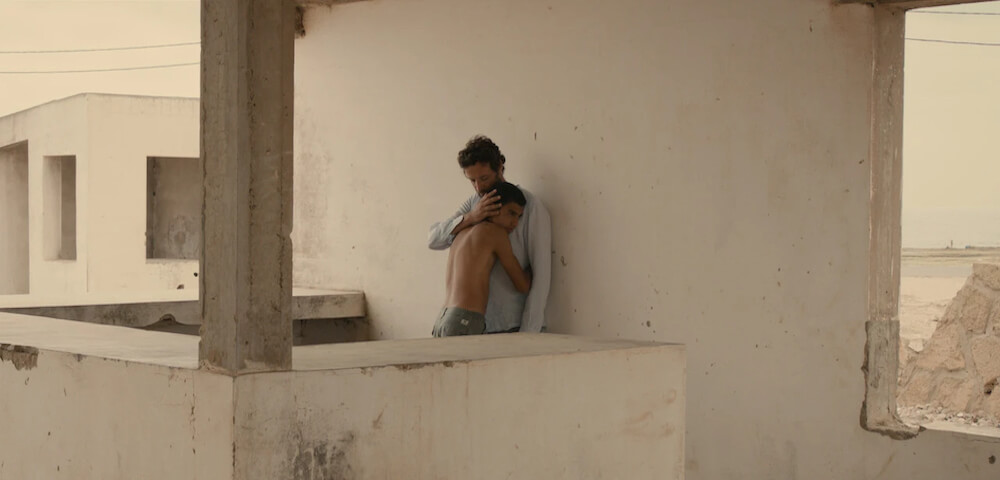
SALVATION ARMY
(L’ARMEE DE SALUT)
dir. Abdellah Taïa, 2014
France/Morocco. 80 min.
In French and Arabic with English subtitles.
TUESDAY, JUNE 2 – 10 PM
SUNDAY, JUNE 8 – 5 PM followed by Q+A with Abdellah Taïa
WEDNESDAY, JUNE 18 – 7:30 PM
FRIDAY, JUNE 27 – 5 PM
Abdellah is a young gay man navigating the sexual, racial and political climate of Morocco. Growing up in a large family in a working-class neighborhood, Abdellah is caught between a distant father, an authoritarian mother, an older brother whom he adores and a handful of predatory older men, in a society that denies his homosexuality. As a college student, Abdellah moves to Geneva and while faced with the new possibilities of freedom, he grapples with the loss of his homeland.
Adapted directly from Taïa’s eponymous 2009 novel, SALVATION ARMY is a quietly confrontational debut that draws explicitly from the novelist-filmmaker’s experience as trauma survivor and closeted gay man in Morocco. Shot by legendary cinematographer Agnès Godard (with whom Taïa determined to collaborate after seeing her work on Claire Denis’ NENETTE AND BONI), it also measures the consequences of abuse – whether from family or from once-trusted elder role model figures – with a surprisingly restrained style. Taïa’s refusal to sentimentalize or sensationalize makes SALVATION ARMY all the more searing in its muted depiction of a young man’s forbidden coming of age.
“When I was a teenager, any signs of a well-accepted homosexuality were absent from real life and from Arab movies… Homosexuality was constantly associated with mental illness, social shame, a sin. To survive I had to make up my own cultural codes. I had to convince myself I had that right. The exclusion and the solitude were not always easy to bear. Much later, at the age of twenty, I discovered secondary characters who bore some signs of homosexuality in movies by Youssef Chahine, Salah Abou Seif or Yousry Nassrallah. But they were not totally in the light. Something was missing… In the collective Arab mind, there is no homosexual hero.” – Abdellah Taïa

CABO NEGRO
dir. Abdellah Taïa, 2024
France/Morocco. 74 min.
In French and Arabic with English subtitles.
THURSDAY, JUNE 5 – 10 PM
FRIDAY, JUNE 13 – 5 PM followed by Q+A with Abdellah Taïa
WEDNESDAY, JUNE 18 – 10 PM
SATURDAY, JUNE 28 – 5 PM
Ten years and several novels after SALVATION ARMY, Taïa stepped behind the camera again to create a slow-burning drama that similarly engages spectatorship and desire, this time vis-a-vis the tourism industry of the filmmaker’s home country of Morocco. Two queer friends seek refuge at a villa rented by an American academic named Jonathan. After he fails to arrive, the young Moroccans must figure out how to survive without returning home, and Taïa’s sophomore feature enters uneasy thriller territory (while continuing to display the unique combination of tenderness and asceticism that made SALVATION ARMY so startling.) Indeed, Taïa introduced a festival screening of the film by saying “Queer people in Morocco living (or trying to live) a ‘normal’ life is revolutionary, with their food, their cities, and their rituals.”
“The body in Taïa’s work is there to be bartered, but it also has a knack for finding affection even in the most pragmatic, or abusive, of transactions. A sequence in SALVATION ARMY of the child protagonist embracing his so-called abuser, desperate for emotional reciprocity, finds its correlative in CABO NEGRO when Jafaar caresses his client’s salt-and-pepper hair, post-coitus, not unlike one would rub a lamp in order to make a farfetched wish. The encounter is meant to simply guarantee the maintenance of Jaffar and Soundouss’s getaway, but Taïa captures the yearning of the sexual aftermath as an inevitable, and inevitably futile, queer wish for continuity, reciprocity, or recognition.” – Diego Semerene, Slant
“This film was inspired by two young gay Moroccans I follow on Instagram. They carry within them the powerful signs of a new, vibrant generation, who live each moment—at all costs—with crazy, inspiring intensity. Incendiary. From the stories they told me, I wrote the script for CABO NEGRO so I might capture that energy, that fire. That urgency. Soundouss and Jaâfar are heroes who no longer wait for change to come; instead, they live life to the fullest and create strong bonds of solidarity between themselves, outside the rules. The film will show these bonds and reveal the mechanisms of the social and political violence that is in process around them. Despite the end of innocence they experience in Cabo Negro, they will be able to rebel. Despite the extreme violence of the world, they will manage to live a love like a river that overflows.” – Abdellah Taïa
Special thanks to Marcus Hu and Andrea Picard.

